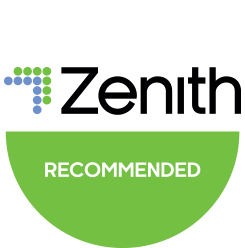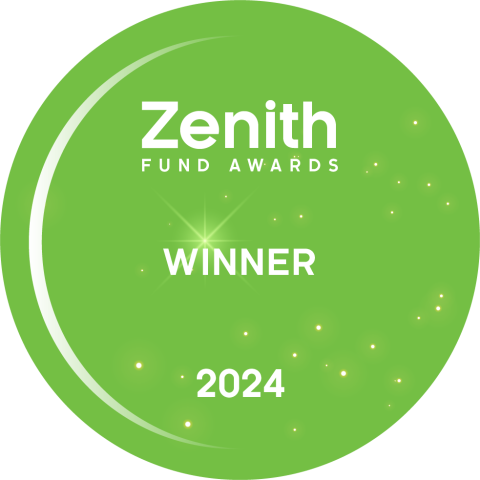13 Feb 2023
Rising star puts shorts aside in search for ‘world’s best companies’
Ex-VGI fundie Justin Hardwick is now at GCQ Funds Management with colleagues Doug Tynan and David Symons. The trio are back investing with gusto.
Justin Hardwick was just 25 when the Sydney hedge fund where he was an analyst, VGI Partners, began digging into Slater & Gordon.
It was 2015, and the then ASX-listed law firm was a market darling. Working with VGI’s Doug Tynan, Hardwick couldn’t help but second guess what he had found. If only just for a moment.
“We are forensic in how we review financial statements, and our analysis showed that Slater & Gordon’s income statement, balance sheet and cash flow statement simply did not reconcile and profits were overstated,” he says. “For a moment I thought I must have made a mistake with my analysis, but ultimately the company’s numbers were revealed to be erroneous.”
Tynan and Hardwick sent around their findings to investors.
Slater & Gordon shares fell 99 per cent not long after VGI flagged the accounting irregularities [https://www.afr.com/companies/professional-services/sowing-the-seeds-ofslater–gordons-market-demise-20170630-gx222b] and an Australian Securities and Investments Commission investigation backstopped one of the most spectacular blow-ups in recent corporate history.
“We were pioneer short sellers and many in Australia’s business community didn’t know what to make of it all,” says Hardwick. “There were some tense times as the company and its highly paid advisers threw everything at trying to discredit us and our short thesis. However, the company ultimately couldn’t hide from the truth and our investors were rewarded.”
Now 32, Hardwick says shorting is a much smaller part of his work at GCQ Funds Management. Its flagship fund manages money for ultra-wealthy individuals, family offices, and wholesale clients.
Tynan founded GCQ in late 2020, bringing with him from VGI both Hardwick – now the head of research and portfolio manager for its flagship fund – and David Symons, the fund’s chief executive.
This month, GCQ sent its first annual investor letter, revealing a market-beating return of 13.1 per cent net of fees since inception in July. This is against 7.3 per cent for the MSCI World Index and 5.6 per cent for the S&P 500 Index.
However, GCQ cautions that this isn’t a long time to measure performance, with a target of net compound returns between 8 per cent and 12 per cent through investment cycles.
GCQ stands for global, concentrated, quality and to reflect that the fund invests in about 20 global growth companies often boasting monopoly-like qualities. The philosophy is to buy the world’s best companies, which GCQ argues will deliver the best long-term returns on a risk-adjusted basis.
Some holdings include tech businesses Visa and Microsoft alongside global retail operators Richemont – which owns Cartier, Van Cleef and Arpels, and several other luxury brands – LVMH and Hermes.
“We are all invested in the fund, and the firm’s investment strategy reflects how we want to invest capital for our own families over the long term,” says Hardwick. “For me, GCQ is a continuation of my 12 years working with Doug Tynan. It feels like only yesterday that Doug recruited me out of university and it’s great to now run our own strategy together.
“We apply the same level of forensic research to high-quality companies that we own. We want to be sure they truly meet our quality requirements.”
Europe’s biggest spin-off in a decade
A recent investment for the fund is a July spin-off from £60 billion ($105 billion) consumer goods and pharmaceuticals giant GlaxoSmithKline, which is a London Stock Exchange stalwart heavily favoured by European fund managers managing the largest mandates.
The spin-off, Haleon [ https://www.afr.com/link/follow-20180101-p5b2tv ], became Europe’s biggest new listing since Glencore in 2011. Among a portfolio of brands it manufactures and distributes are Voltaren, Panadol, Sensodyne and Advil – and the company has previously been a takeover target for London-listed consumer goods giant Unilever.
US drugs giant Pfizer retains a 32 per cent stake in Haleon after the spin-off – although it’s reported to want to sell it off over time. GSK has a 13.5 per cent holding and is also thought to be keen to sell down.
“We love spin-offs and demutualisations. A heightened corporate focus with stronger management alignment structures have given rise to many excellent investment opportunities,” says Hardwick.
“Often, a spun-off business can end up in the hands of the wrong shareholder base, which can create short-term selling pressure. This creates an opportunity for longterm shareholders.”
The stock fetched £3.30 on its debut and has tracked sideways since. The company is due to post its first set of full-year financial results as an independent business in March.
Hardwick says not everyone knows Haleon, but almost everyone will appreciate its powerful brands and the nature of fast-moving consumer goods businesses that sell products, repeatedly, to the same customers.
“Sensodyne is arguably the best toothpaste franchise on Earth as it dominates the premium, high-margin and high-growth sensitive toothpaste category,” he says. “We expect significant growth ahead, given nearly one in three adults experience sensitive teeth, while only one in three of those use sensitive toothpaste.”
Hardwick says every potential investment GCQ considers must pass a rigorous checklist, among other risk-management tools. Haleon, he says, ticked all the boxes. It has strong brands with high customer loyalty, scale and competitive advantages, a position in a consolidated industry that is hard to threaten, secular growth as it expands globally and incomes rise, pricing power, high margins, and strong returns on invested capital.
The repeat purchase nature of the business supports revenue predictability and Hardwick says consumer packaged goods businesses are also insulated from the threat of technological change disrupting them.
Leftover stakes
The fund manager estimates that Haleon’s enterprise value is about 14 times its annual earnings before interest and tax to make it relatively cheap.
Two temporary factors are flagged as weighing on the share price for now, Hardwick adds. They are a market overhang given Pfizer and GSK are expected to slowly sell leftover stakes and worries Haleon’s net debt at three times estimates for EBITDA in financial 2023 is too high.
The fund manager said it would prefer lower debt, but has confidence management will pay it down quickly, with the portfolio allocation limited to 2 to 3 per cent.
Looking ahead Hardwick says he’ll focus on managing risk and paying attention to valuation. “Many investors made the mistake of investing in high-priced, high growth but low-quality companies in the bull market of 2021, and suffered as a result in 2022,” he says.
The first stock the UNSW graduate and CFA charter holder bought 15 years ago as a teenager interested in financial markets was Microsoft. He’s held on since, as it’s multiplied in value 15 times.
“Microsoft has provided endless lessons on the benefits of looking globally for the highest quality businesses,” he says. “Time and again we see high-quality businesses surprise to the upside, and as a result they make the best long-term investments.”
Tom Richardson Markets reporter and commentator AFR – Tom Richardson writes and comments on markets including equities, debt, crypto, software, banking, payments, and regulation. He worked in asset management at Bank of New York Mellon in London.
Ends.


